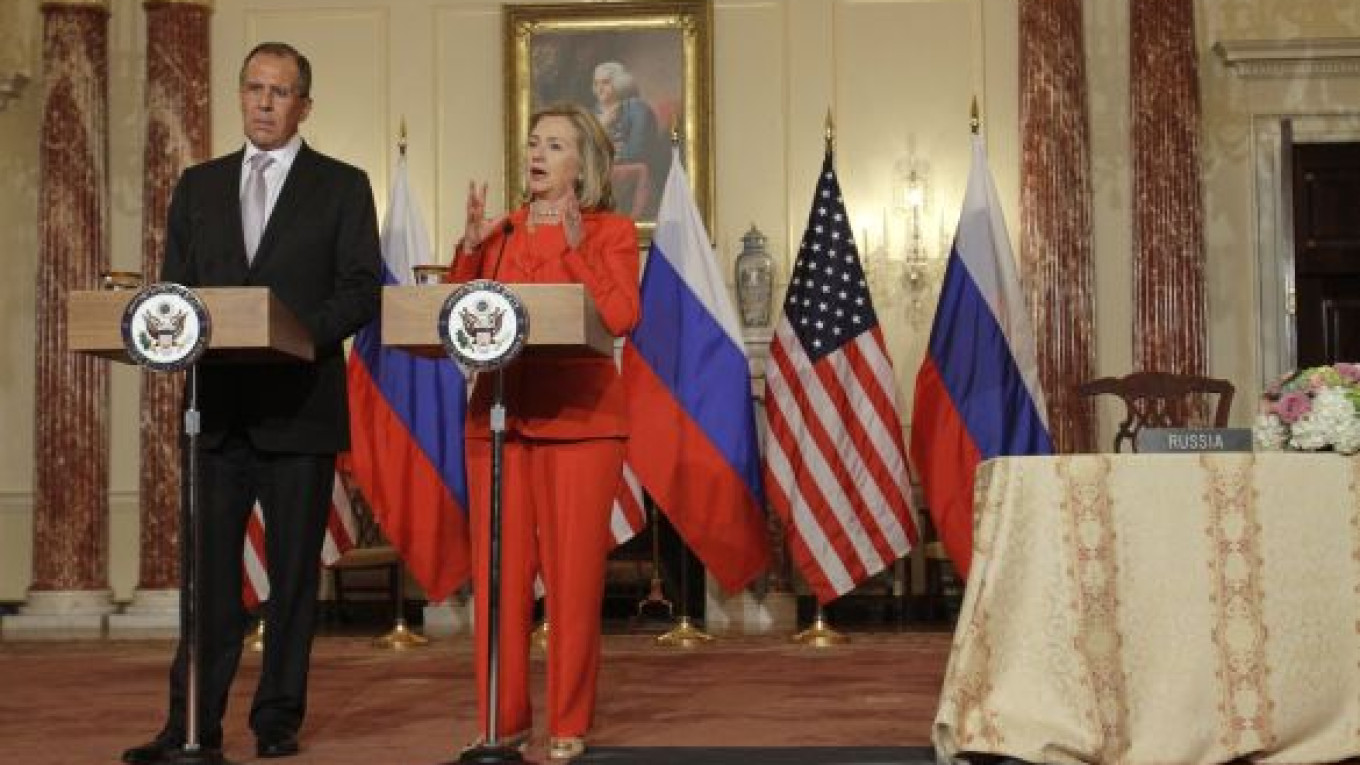WASHINGTON —? Foreign Minister Sergei Lavrov has laid out a "step-by-step" approach under which Iran could address questions about its nuclear program and be rewarded with a gradual easing of sanctions.
The proposal, described by Lavrov after talks with President Barack Obama and Secretary of State Hillary Clinton, seeks to revive negotiations to put to rest Western suspicions that Iran may be seeking nuclear arms.
Talks between Iran and the five permanent members of the UN Security Council — Britain, China, France, Russia and the United States — plus Germany, in Geneva in December and in Istanbul in January, failed to make headway on reining in Iran's nuclear program, which Tehran says is peaceful.
Lavrov said Russia had proposed a "phased" process in which Iran would take steps to address the concerns of the International Atomic Energy Agency, the UN nuclear watchdog.
"The response to each specific step of Iran would be followed by some reciprocal step, like freezing some sanctions and shortening the volume of sanctions," Lavrov said Wednesday at a news conference with Clinton.
He acknowledged differences between the Russian and U.S. stances on the issue, describing it as "yet another example of the fact that there are problems on our agenda."
Clinton did not directly address a question on her views about easing sanctions in a phased approach, but Washington has been resistant to this on the grounds that doing so would give up what leverage it has over Tehran. "We are committed to our dual track of pressure and engagement, and we want to explore with the Russians ways that we can perhaps pursue more effective engagement strategies," she said, adding that Russian and U.S. experts would discuss the issue.
The target is to hold the talks in Moscow the week of July 25, said a U.S. official who spoke on condition of anonymity.
Lavrov also met with President Barack Obama in the White House for talks on the next steps in Libya, Iran and the prospects for political change in Syria and Yemen. The White House said Obama reiterated his support for Russia's efforts to forge a political solution between the regime of Libyan leader Moammar Gadhafi and the rebels fighting to topple him.
Obama delivered a similar message Monday to President Dmitry Medvedev, saying the United States would support talks that lead to a democratic transition in Libya as long as Gadhafi steps aside.
Separately, the State Department said Clinton and Lavrov finalized agreements on several U.S.-Russia issues, including:
• a pact to regulate child adoptions;
• an agreement committing each country to dispose of at least 34 tons of excess weapons-grade plutonium; the combined amount, 68 metric tons, represents enough material for about 17,000 nuclear weapons; disposal of the material is expected to begin in 2018, the State Department said;
• extending a 1994 pact for U.S. and Russian scientists to collaborate on researching the effects of radiation.
(Reuters, AP)
A Message from The Moscow Times:
Dear readers,
We are facing unprecedented challenges. Russia's Prosecutor General's Office has designated The Moscow Times as an "undesirable" organization, criminalizing our work and putting our staff at risk of prosecution. This follows our earlier unjust labeling as a "foreign agent."
These actions are direct attempts to silence independent journalism in Russia. The authorities claim our work "discredits the decisions of the Russian leadership." We see things differently: we strive to provide accurate, unbiased reporting on Russia.
We, the journalists of The Moscow Times, refuse to be silenced. But to continue our work, we need your help.
Your support, no matter how small, makes a world of difference. If you can, please support us monthly starting from just $2. It's quick to set up, and every contribution makes a significant impact.
By supporting The Moscow Times, you're defending open, independent journalism in the face of repression. Thank you for standing with us.
Remind me later.


